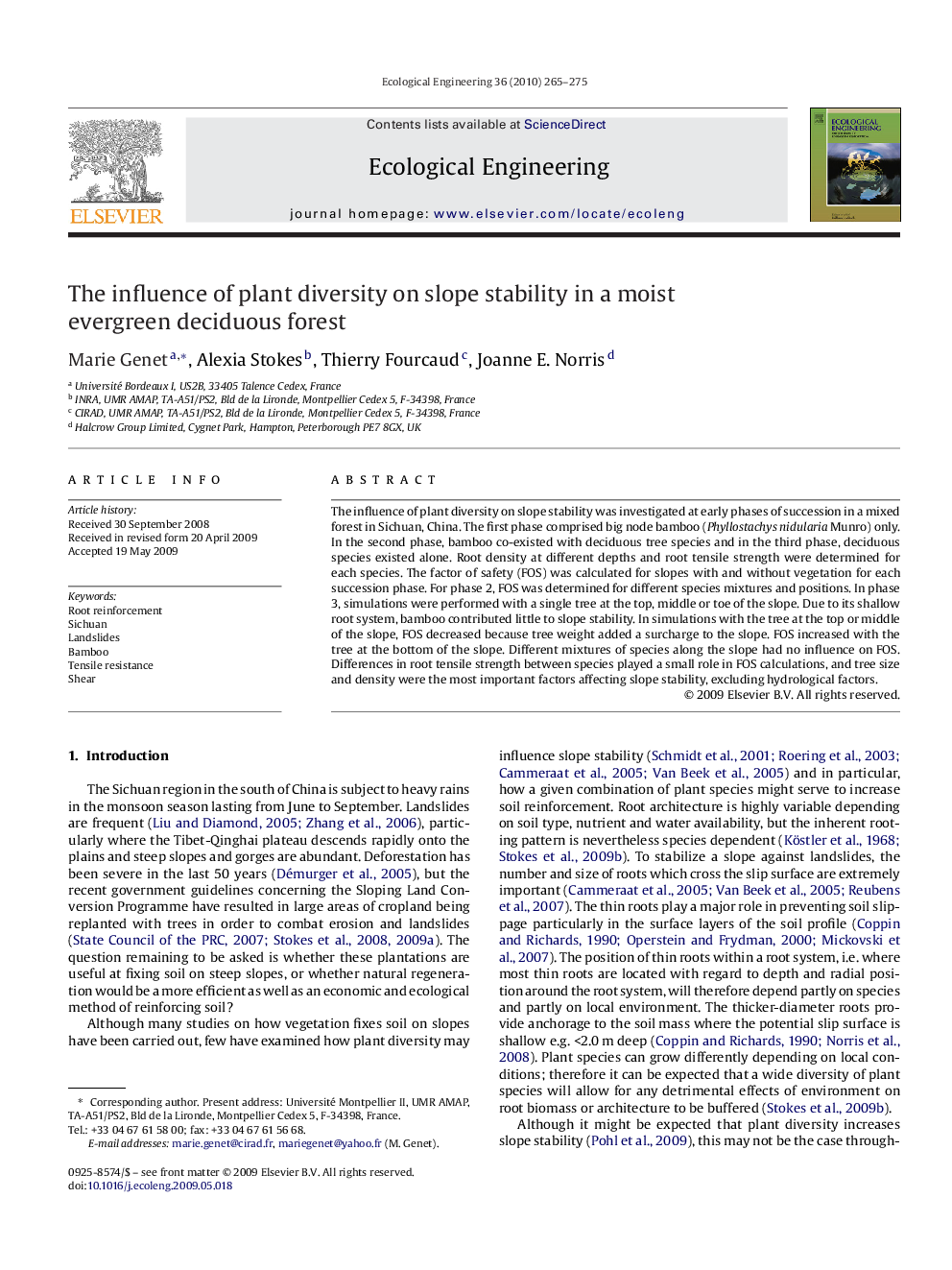| Article ID | Journal | Published Year | Pages | File Type |
|---|---|---|---|---|
| 4390645 | Ecological Engineering | 2010 | 11 Pages |
The influence of plant diversity on slope stability was investigated at early phases of succession in a mixed forest in Sichuan, China. The first phase comprised big node bamboo (Phyllostachys nidularia Munro) only. In the second phase, bamboo co-existed with deciduous tree species and in the third phase, deciduous species existed alone. Root density at different depths and root tensile strength were determined for each species. The factor of safety (FOS) was calculated for slopes with and without vegetation for each succession phase. For phase 2, FOS was determined for different species mixtures and positions. In phase 3, simulations were performed with a single tree at the top, middle or toe of the slope. Due to its shallow root system, bamboo contributed little to slope stability. In simulations with the tree at the top or middle of the slope, FOS decreased because tree weight added a surcharge to the slope. FOS increased with the tree at the bottom of the slope. Different mixtures of species along the slope had no influence on FOS. Differences in root tensile strength between species played a small role in FOS calculations, and tree size and density were the most important factors affecting slope stability, excluding hydrological factors.
